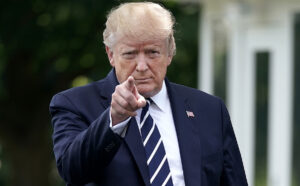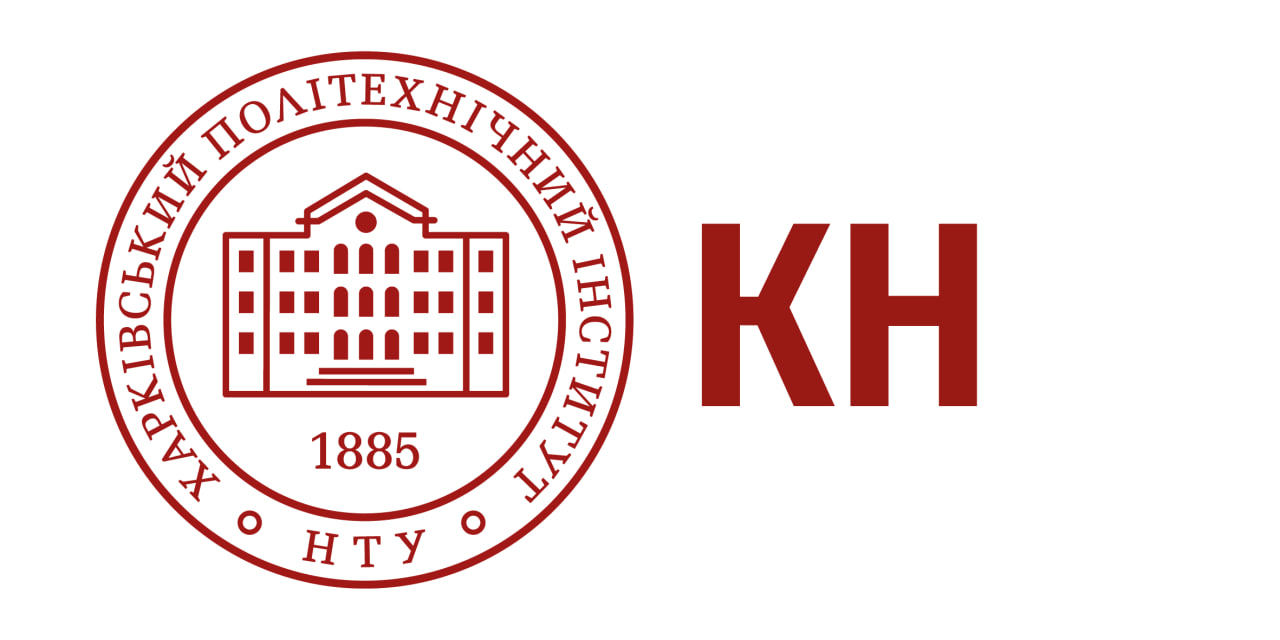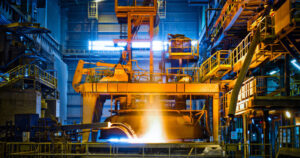
According to Serbian Economist, the Serbian parliament has passed a special law that accelerates preparations for the development of the site of the former Yugoslav National Army General Staff Headquarters in central Belgrade, which was damaged by NATO strikes in 1999. The developer is Affinity Global Development, an investment company founded by US President Donald Trump’s son-in-law Jared Kushner.
The project, worth about $500 million, involves the construction of a hotel, apartments, offices, and retail space, as well as a memorial space for the victims of the bombing.
A 99-year lease agreement with the Serbian government was signed in May 2024. In November 2024, the site was stripped of its protected cultural heritage status, paving the way for the project to go ahead. The adopted lex specialis simplifies and speeds up the issuance of permits and other administrative procedures, the authorities noted.
The opposition and relevant organizations criticize the decision, citing the cultural value of the complex and legal risks. Europa Nostra has included the General Staff Headquarters in its list of the seven most vulnerable European heritage sites of 2025. Radio Liberty notes that the law was passed with the votes of the ruling party, despite protests and an investigation into possible falsification of the document used to remove the protective status.
Affinity Global Development’s public statements and official communications do not mention the hotel brand, number of rooms, number of floors, room area, parking, or exact completion date. International agencies limit themselves to describing the functional mix without specifications. When official materials on the TEP and branding appear, the editorial staff of Serbian Economist will clarify the data.
The government is promoting the project as an investment and revitalization of Belgrade’s central location. Critics believe that the demolition and new construction will damage the modernist legacy of architect Nikola Dobrovic and the public memory of the events of 1999.
https://t.me/relocationrs/1705

US President Donald Trump has said that representatives of his administration will not participate in the G20 summit, which will take place on November 22-23, 2025, in Johannesburg, citing “violations of the rights” of white South Africans. He announced this on the social network Truth Social, and his position has been reported by leading publications.
According to Trump, holding G20 meetings in South Africa is a “disgrace,” and the country’s authorities allow the murder and illegal seizure of land from Afrikaners. The South African side called such statements unfounded and “regretted” the US decision.
South Africa will chair the G20 in 2025, with a leadership meeting scheduled for November 22-23 in Johannesburg.
The Trump administration has previously signaled a tough stance on South Africa, including public statements on the situation surrounding white farmers, which have been criticized by the expert community and South African officials.
boycott, G20, SOUTH AFRICA, SUMMIT, US

The National Technical University “Kharkiv Polytechnic Institute” has received modern industrial equipment from Schneider Electric for the creation of multifunctional stands that simulate the operation of technological process automation systems. The complexes are designed to train students in the fields of automation, computer-integrated technologies, and robotics, according to KPI.
According to the university, the delivery includes new-generation programmable logic controllers, operator panels, relay devices, indicators, and other industrial automation tools, which will allow students to practice their skills in designing and testing control systems in conditions close to real production.
In addition, teachers and students are provided with academic access to the SEE Electrical Expert software package from IGE+XAO for the development of electrical diagrams and documentation. KPI reports that specialized training in working with the software will take place in September 2025.
As Mikhail Bubnov, CEO of Schneider Electric in Ukraine, said: “It is important for us that Ukrainian students work with the same equipment and software as engineers in modern factories. These stands allow students to practice the full cycle of training as an automation engineer — from circuit design and PLC programming to commissioning and diagnostics. We will continue to support university laboratories and educational programs because this is a direct investment in the human resources needed to rebuild the industry.”

Schneider Electric is a global provider of energy management and industrial automation solutions with approximately 160,000 employees and a partner network in more than 100 countries. In 2024, the group’s revenue was approximately €38 billion, and in the third quarter of 2025, it was €10 billion, with organic growth of 9%. The company notes sustained demand from data centers and industrial automation.
SEE Electrical Expert is professional software for electrical design developed by the IGE+XAO Group, which provides training and academic programs for universities.
NTU “KhPI” is one of the oldest technical universities in Ukraine, founded in 1885. According to the university, it has 10 educational and scientific institutes, 103 departments, and over 15,000 students. The university is consistently ranked among the top five Ukrainian universities in the QS rankings.

Ukrainian President Volodymyr Zelensky signed two decrees on the implementation of decisions by the National Security and Defense Council of Ukraine regarding the application of personal special economic and other restrictive measures, his press service reported.
“Russia is trying to drag out the war, expanding its attempts to justify its aggression and ‘normalize’ the occupation of Ukrainian territories. Russia has also recently made a demonstrative political decision to impose ‘sanctions’ against Ukrainian officials, in particular against the Prime Minister of Ukraine. Such behaviour by Russia deserves much greater pressure from the world and an expansion of the scope of this pressure,” the president said.
The first decree introduces sanctions against eight individuals who are participants in crimes against Ukraine and Ukrainians, have appropriated property in the agricultural sector, grain crops, cultural heritage sites, conduct information operations against our state, and implement Russian educational standards with anti-Ukrainian narratives in the temporarily occupied territories of Ukraine.
From now on, Russian officials, an FSB agent involved in information sabotage, a representative of the Russian General Staff’s information management department, as well as Kirill Dmitriev, a financier close to the Russian president who is involved in attracting Russian investments to key sectors of foreign economies, and individuals who justify the Russian Federation’s armed aggression are subject to sanctions.
The head of state stressed that Ukraine will submit our proposals for new sanctions to the relevant partners.
The second decree introduces sanctions against five legal entities – Russian publishing houses that work to justify aggression, spread Russian propaganda around the world, and instill anti-Ukrainian sentiments in the temporarily occupied territories of Donetsk, Luhansk, Zaporizhzhia, and Kherson regions.
“We will work to ensure that these publishers cannot participate in international book fairs and that their products are removed from online sales platforms around the world,” said Vladislav Vlasyuk, the president’s adviser on sanctions policy.
decree, RUSSIAN FEDERATION, SANCTION, ZELENSKY, Кирилл Дмитриев

In January-September 2025, pharmaceutical manufacturer Monfarm (Cherkasy region) increased its net profit by 9.6 times compared to the same period in 2024, to UAH 25.176 million.
According to the company’s disclosure to the National Securities and Stock Market Commission, its net sales revenue for this period increased by 34.7% to UAH 233.655 million.
Monfarm PJSC was established in 1994 through the corporatization and privatization of the Monastyryshchensky Pharmaceutical Plant, a state-owned enterprise organized in 1986 on the basis of an alcohol plant as part of the Kyiv pharmaceutical association Darnitsa.
Monfarm specializes in the production of suppositories and tableted medicines, with more than 70 names of medicines from various pharmaceutical groups.
The quality of the products is confirmed by GMP certificates.

According to the results for January-September of this year, PJSC Ukrainian Graphite (Ukrgraphite, Zaporizhia) increased its net losses by 56.7% compared to the same period last year, to UAH 185.076 million.
According to the company’s interim report, net income for this period decreased by 9.8% to UAH 973.915 million.
The company’s undistributed profit at the end of September amounted to UAH 3 billion 480.625 million.
As reported, Ukrgrafit ended 2024 with a net loss of UAH 202.447 million, while in 2023 it increased its net profit by 2.34 times compared to 2022, to UAH 122.920 million.
Ukrgrafit is a leading Ukrainian manufacturer of graphite electrodes for electric steel melting, ore-thermal, and other types of electric furnaces, commercial carbon masses for Soderberg electrodes, and carbon-based refractory materials for metallurgical, machine-building, chemical, and other industrial complexes.
According to the National Depository of Ukraine (NDU) for the first quarter of 2025, Intergraphite Holdings Company Limited (Malta) owns 23.9841% of the private joint-stock company, and C6 Safe Group Limited (Cyprus) owns 72.0394%.
The authorized capital of the private joint-stock company is UAH 233.959 million, and the nominal value of a share is UAH 3.35.